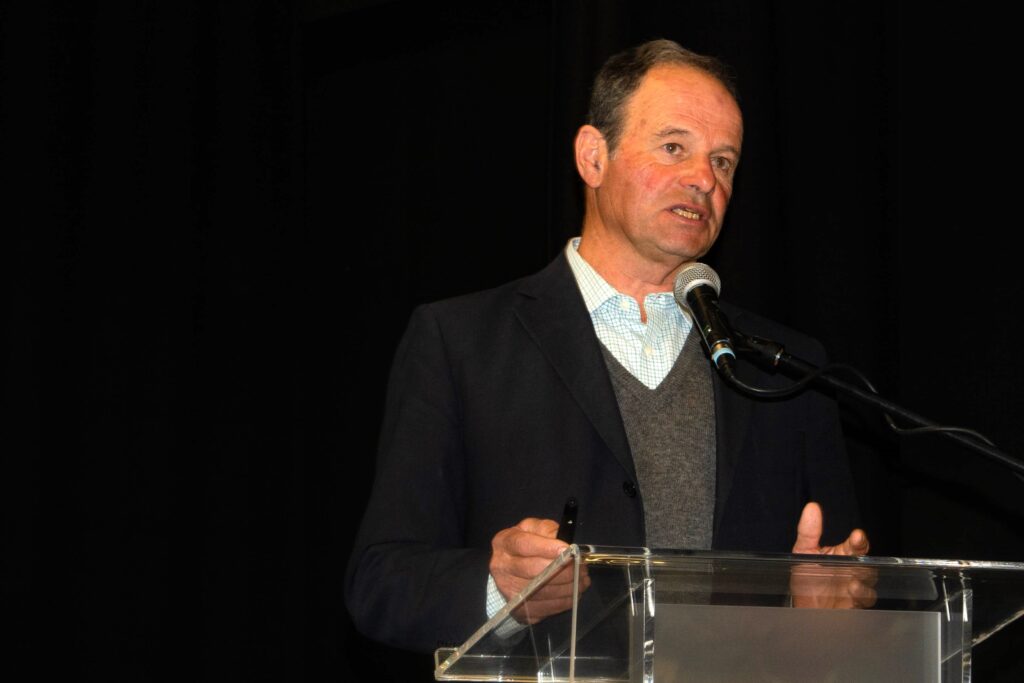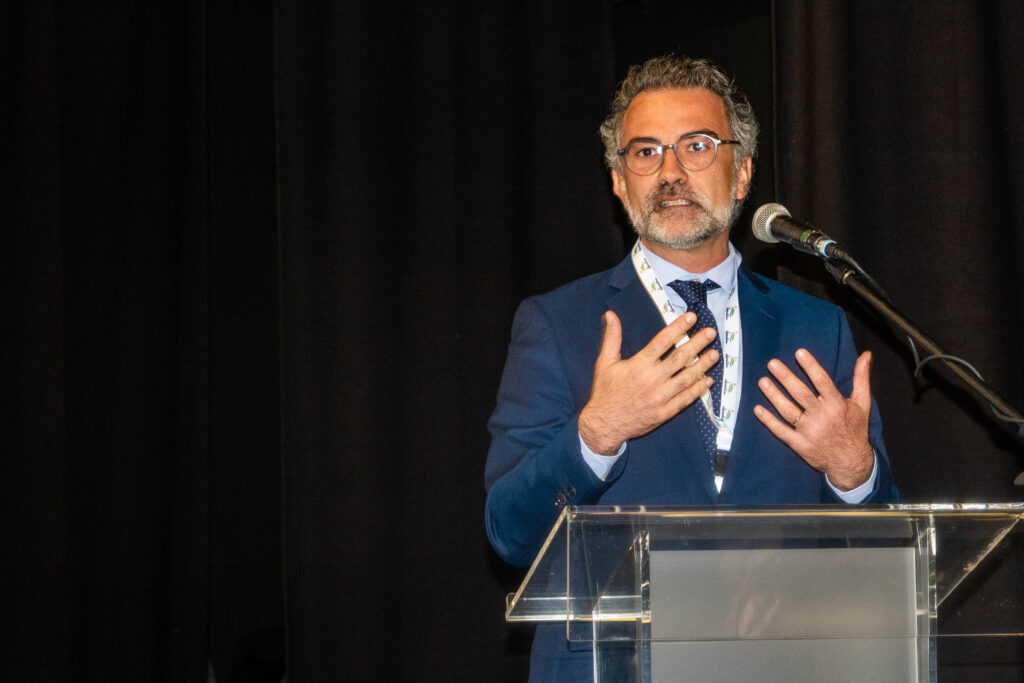The Algarve is in a “very difficult” situation due to the drought and at present there are only two things to do, “wait for it to rain and save money”, said the president of the Algarve Intermunicipal Community (AMAL) today.
António Miguel Pina left this reflection on the panel at the opening of the Jornadas do Mundo Rural, which takes place today, February 29th, and Friday in Alcoutim, warning that these solutions are the only ones that can help preserve existing reserves in the region , until the planned investments to combat the drought are completed.
“I want to leave some ideas and concerns for the future, because the present is really difficult and there are only two things to do: wait for it to rain and save. In the short term, that’s all there is to do”, stated the also mayor of Olhão.
António Miguel Pina recalled that the region's existing public supply system “was sufficient” in the last 20 years to guarantee the needs of the urban circuit and irrigation perimeters, but stressed that the dry periods were four to five years old and the current one has already It's been going on for eight years.
Faced with this scenario, the president of AMAL asked the region for unity to move forward with necessary investments, which should include, he argued, a connection from the Alqueva dam system to the Beliche-Odeleite dam and another to the Santa Clara dam.
This solution is not, however, the most suitable for the president of the board of directors of the Alqueva Development and Infrastructure Company (EDIA), José Pedro Salema.
According to the person responsible, who spoke during an intervention during the conferences, this system is designed for a certain reality and, “if you start to stretch the network further, you will take away guarantees of supply” to the current one.
“This is not EDIA's vision, EDIA's vision is to guarantee the area that is infrastructured and contribute with knowledge and solutions to other geographies that are nearby, essentially damming national water lines, therefore water resources that are already owned by Portugal and they are not on an international river, which raises diplomatic questions. And then, there is a lot to do”, he considered.
Among the water lines identified are, he pointed out, the Monchique stream, in the Barlavento (western) Algarve, the Oeiras and Terges and Cobres streams, tributaries of the Guadiana, in the Alentejo, or the Vascão and Foupana streams, in the Algarve , which can provide “one hundred or several tens of cubic hectometers”.

Also present at the panel on water at Jornada do Mundo Rural was Macário Correia, president of the Sotavento Algarvio irrigation association, who also defended the need to take advantage of the streams that originate in the Serra do Caldeirão to create new water retention areas, such as the rivers of Alportel or Foupana, in which the association is leading a project to build a dam.
The former ruler considered that these projects have been talked about for decades and would allow agriculture to grow and increase its contribution to food, the regional economy, exports or employment.
Macário Correia also took the opportunity to insist on criticizing the lack of work carried out to combat losses of 30% in supply networks, when agriculture is subject to cuts that can reach 70% in Sotavento.
Promoted by the Chambers of Alcoutim and Mértola and the Cumeadas Association, the days, which focus on topics such as water, ecosystems, landscape, agroforestry, climate or hunting, end on Friday in Alcoutim.
The Algarve is currently on alert due to drought, which led the Government to adopt measures to restrict consumption, such as reductions of 15% in the urban cycle, including tourism, or 25% in agriculture.
There are several projects planned to increase water availability in the region, including the construction of a desalination plant, the capture of water from the Guadiana River from Pomarão or the construction of a dam on the Foupana river.



















Comments